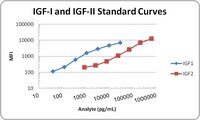Effects of maternal obstructive sleep apnoea on fetal growth: a prospective cohort study.
Fung, AM; Wilson, DL; Lappas, M; Howard, M; Barnes, M; O'Donoghue, F; Tong, S; Esdale, H; Fleming, G; Walker, SP
PloS one
8
e68057
2013
Mostrar Resumo
The objective of this study is to determine whether obstructive sleep apnea (OSA) is associated with reduced fetal growth, and whether nocturnal oxygen desaturation precipitates acute fetal heart rate changes.We performed a prospective observational study, screening 371 women in the second trimester for OSA symptoms. 41 subsequently underwent overnight sleep studies to diagnose OSA. Third trimester fetal growth was assessed using ultrasound. Fetal heart rate monitoring accompanied the sleep study. Cord blood was taken at delivery, to measure key regulators of fetal growth.Of 371 women screened, 108 (29%) were high risk for OSA. 26 high risk and 15 low risk women completed the longitudinal study; 14 had confirmed OSA (cases), and 27 were controls. The median (interquartile range) respiratory disturbance index (number of apnoeas, hypopnoeas or respiratory related arousals/hour of sleep) was 7.9 (6.1-13.8) for cases and 2.2 (1.3-3.5) for controls (p<0.001). Impaired fetal growth was observed in 43% (6/14) of cases, vs 11% (3/27) of controls (RR 2.67; 1.25-5.7; p = 0.04). Using logistic regression, only OSA (OR 6; 1.2-29.7, p = 0.03) and body mass index (OR 2.52; 1.09-5.80, p = 0.03) were significantly associated with impaired fetal growth. After adjusting for body mass index on multivariate analysis, the association between OSA and impaired fetal growth was not appreciably altered (OR 5.3; 0.93-30.34, p = 0.06), although just failed to achieve statistical significance. Prolonged fetal heart rate decelerations accompanied nocturnal oxygen desaturation in one fetus, subsequently found to be severely growth restricted. Fetal growth regulators showed changes in the expected direction- with IGF-1 lower, and IGFBP-1 and IGFBP-2 higher- in the cord blood of infants of cases vs controls, although were not significantly different.OSA may be associated with reduced fetal growth in late pregnancy. Further evaluation is warranted to establish whether OSA may be an important contributor to adverse perinatal outcome, including stillbirth. | 23894293
 |









